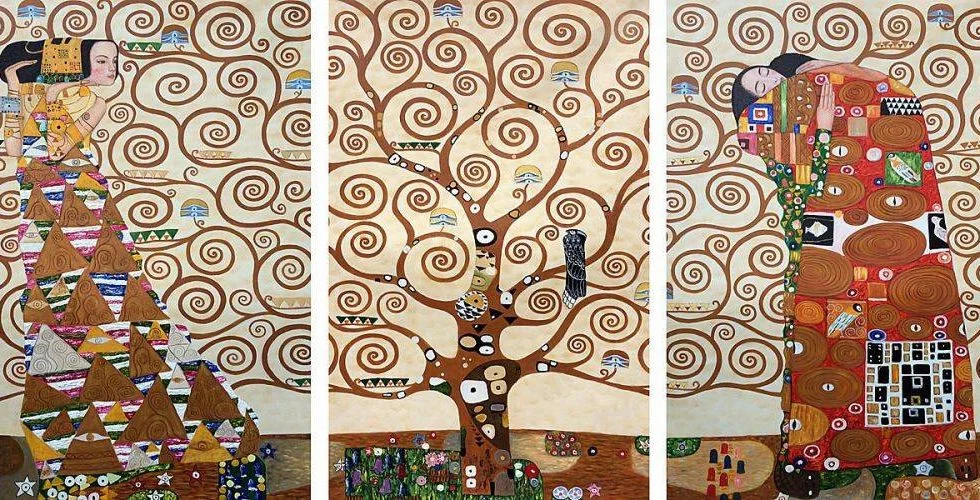Self-Knowledge • Trauma & Childhood
How to Live Long-Term With Trauma
It is in the nature of most traumas that we will never — sadly — entirely get over them. They will continue to linger and threaten, waiting until we are tired or anxious or rejected in love to reassert their stranglehold and punish us with their dark narratives.
But that is not remotely to say that traumas will have to continue to ruin our lives or be anything like the burden they may have been to date. The symptoms can be managed. We can learn to sidestep their worst effects — and aim to infuse our remaining years with creativity and freedom.

However, attaining our goals means we will need to be disciplined. There are things we need to squarely aim for and others, just as squarely, that we must avoid. A sound life might require some of the following:
Things to Avoid
Too Many Commitments
Our saddest moods thrive in frenetic conditions. We can’t allow ourselves to be constantly hostage to panic and to turn a blind eye to what busy-ness does to our souls. Calm should be our central and guiding ambition and — if one can put it grandly — the meaning of our lives. We need to recognise how much we crave it — and how much more fulfilling and interesting it is than fame, money, success or popularity.
In its name, we may need to instigate all kinds of retrenchments, we may need to learn to say ‘no’ to things exponentially more times than we say ‘yes’ and to exercise extreme care before taking on any new activity or commitment. We should aim to decrease how much we are doing — and to budget in acres of time in which to do nothing much other than stare out of the window (a hugely significant and therapeutic activity that we should urgently adopt).
We need to treat ourselves with all the vigilance of a parent watching over the fragile child we once were. We should deem it the height of wisdom and kindness to ourselves to dare to lead what some would crudely and blithely call a boring life.
The Wrong People
We are likely to be surrounded by people who are too internally troubled and excitable to have time for thoughtfulness, self-exploration and tenderness. We should — with utter dispassion — learn to say goodbye to them; losing friends is as much of an art as making them. Even when people are amusing or thrilling, we should put our own needs for serenity front and centre and sift accordingly. A fitting social circle for our traumatised selves might be far more restricted than we had ever imagined would be necessary. We might put substantial energy into tracking down, and building solid bonds with, just three or four people we know will be there for us when our demons return. And we should be extremely happy whenever we can be in bed by nine.
Status
Status is electrifying. People know you when you walk into a restaurant, it’s easier to get a date, strangers are happy to be kind. It’s a big cost to say goodbye to such a quality — but the traumatised ones among us gradually get to know the true cost of status-acquisition. We may lose our minds in the process. We might need to move to quieter parts of the world and build our friendship groups out of people who have also known illness and are hence filled with a calm wry perspective on the disasters and troubles of being human. Many fewer people will like us and a few precious souls will love us deeply — and the trade off will save our lives.
Phones
These machines are evidently instruments of torture. We can’t get rid of them, that much is obvious. But we should be fully aware of the extraordinary harm they do to our equilibrium. They shred our ability to think, to examine our past and to communicate our depths. We should, as we tuck them safely in our pockets, know just how much we should ideally want to throw them down a very deep well.
The News
We are asked to worry — constantly — about things we cannot alter: wars, murders, pandemoniums, beheadings, sackings and drunken misdemeanours. Without telling too many people, we should learn the noble practice of detachment. We cannot continue to align our hopes with the fate of the unfortunate strangers that the media parades minute by minute before us to arouse our envy, outrage and passion. We should live a little like our ancestors: concerned with the people immediately around us but ignorant of anything too much beyond the mountains or the sea. We should pride ourselves on all the horrors we haven’t yet heard about and all the celebrities whose antics and indiscretions remain blessedly foreign to us. We should try to know a little less — and, in the quiet of our early mornings, see a little more.

Things to Embrace
At the same time, as trauma convalescents, there are things we should learn to depend on in order to support us:
Nature
We should love trees and sheep and clouds and mild afternoons not so much for themselves as for what they can deliver to our frayed psyches. We need evidence of worlds that have nothing to do with humans and, most importantly of all, nothing to do with us. Sheep don’t care who got fired from the office, the tree — that has stood in the earth for the last 400 years — is blissfully unconcerned with your reputation and your ambition and your shame. The clouds scuttle unconsciously across the sky. We need regular contact with a world of non-I in order to be reduced in our nervous eyes and to dissolve our anxieties and fears in the sublimely indifferent vastness of the cosmos.
Relationships
What we need most of all is kindness and thoughtfulness; a special friend who will sympathise with us for our distress, understand us, not judge us too harshly and be present for us when our troubles threaten to overwhelm us again. None of that sounds Romantic and it isn’t, thankfully. We should — within a couple — be each other’s nurses and parents, as well as (intermittently) patients and children. We should bring therapeutic care and concern to one another at all times of day and night. We should make the kindly attenuation of the difficulties of living the central goal of any relationship.
Therapy
Many psychotherapists are substandard. We may have to search for a very long time indeed to find one we like and who can see properly into our troubles. But when we locate them, we will have discovered someone with whom we don’t need to feel ashamed of our compulsions and antics. We will know that we can’t judge things fairly on our own and that the therapist will be there to help us separate out fears from facts and to prevent us from reading too much of the past in a more innocent and more hopeful future.
Retreats
We might want to explore the possibility of regularly leaving daily life behind in order to attend retreats specifically focused on healing and processing the symptoms of trauma. We’ll have a chance to meet other people who have been through stories comparable to our own. We’ll be able to cry together, support one another and know conclusively that we are not alone. We’ll be practising how to defend ourselves against fear and inhibition — and every new friend we make in such a setting will be one more argument in favour of staying the course.
Modesty
We have been ill, very ill perhaps — and might have to be so again. We should take our recovery slowly. It won’t happen in a day; and it might require years. We should be extremely pleased every time we have a good week. Often, we’ll need to take it just a day at time. Crises will descend soon enough. But that is OK. We should develop resilience by showing extreme modesty about what can be expected. We shouldn’t ever bank on a trouble-free horizon. We are too sensitive and too injured for that. And yet, against a backdrop of caution, pleasant small things will stand out. We’ll feel uncommonly elated because it’s a relatively calm evening, or we just discovered a new and very tasty kind of bread or a fascinating book or a sensitive friend. Our lives will need to be assembled from superficially ‘small’ but in fact momentous elements.

With some of these in place, we’ll know better how to understand what happened to us in years past — and will be committed, at last, to guiding ourselves to the quieter, kinder, happier future we deserve and so deeply long for.


























